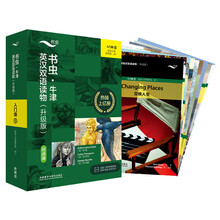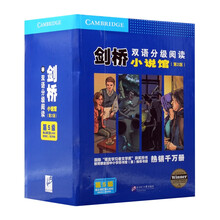SCENNE Ⅰ
Verona. A public place.
Enter Sampson and Gregory with swords and bucklers, of the house of Capulet.
SAMPSON. Gregory, on my word, we'll not carry coals.
GREGORY. No, for then we should be colliers.
SAMPSON. I mean, and we be in choler, we'll draw.
GREGORY. Ay, while you live, draw your neck out of collar.
SAMPSON. I strike quickly, being moved.
GREGORY. But thou art not quickly moved to strike.
SAMPSON. A dog of the house of Montague moves me.
GREGORY. To move is to stir, and to be valiant is to stand. Therefore, if thou art moved, thou run'st away.
SAMPSON. A dog of that house shall move me to stand. I will take the wall of any man or maid of Montague's.
GREGORY. That shows thee a weak slave; for the weakest goes to the wall.
SAMPSON. 'Tis true; and therefore women, being the weaker vessels, are ever thrust to the wall. Therefore I will push Montague's men from the wall and thrust his maids to the wall.
GREGORY. The quarrel is between our masters and us their men.
SAMPSON. Tis all one. I will show myself a tyrant. When I have fought with the men, I will be cruel with the maids will cut off their heads.
GREGORY. The heads of the maids?
SAMPSON. Ay, the heads of the maids or their maiden-heads. Take it in what sense thou wilt.
GREGORY. They must take it in sense that feel it.
SAMPSON. Me they shall feel while I am able to stand; and 'tis known I am a pretty piece of fiesh.
GREGORY. 'Tis well thou art not fish; if thou hadst, thou hadst been Poor John. Draw thy tool! Here comes two of the house of Montagues.
Enter two other Servingmen [Abram and Balthasar].
SAMPSON. My naked weapon is out. Quarrel! I will back thee.
GREGORY. How? Turn thy back and run?
SAMPSON. Fear me not.
GREGORY. No, marry. I fear thee !
SAMPSON. Let us take the law of our sides; let them begin.
GREGORY. I will frown as I pass by, and let them take it as they list.
SAMPSON. Nay, as they dare. I will bite my thumb at them, which is disgrace to them if they bear it.
ABRAM. Do you bite your thumb at us, sir?
SAMPSON. I do bite my thumb, sir.
ABRAM. Do you bite your thumb at us, sir?
SAMPSON. [Aside to Gregory] Is the law of our side ifl say ay?
GREGORY. [Aside to Sampson] No.
SAMPSON. No, sir, I do not bite my thumb at you, sir; but I bite my thumb, sir.
GREGORY. Do you quarrel, sir?
ABRAM. Quarrel, sir? No, sir.
SAMPSON. But if you do, sir, I am for you. I serve as good a man as you.
ABRAM. No better.
SAMPSON. Well, sir.
Enter Benvolio.
GREGORY. Say "better." Here comes one of my master's kinsmen.
SAMPSON. Yes, better, sir.
ABRAM. Youlie.
SAMPSON. Draw, if you be men. Gregory, remember thy swashing blow. They fight.
BENVOLIO. Part, fools! Put up your swords. You know not what you do.
Enter Tybalt.
TYBALT. What, art thou drawn among these heartless hinds? Turn thee Benvolio; look upon thy death.
BENVOLIO. I do but keep the peace. Put up thy sword, Or manage it to part these men with me.
TYBALT. What, drawn, and talk ofpeace? I hate the word As I hate hell, all Montagues, and thee. Have at thee, coward!
[They fight.]
Enter [an Officer, and] three or four Citizens with clubs or partisans.
OFFICER. Clubs, bills, and partisans! Strike! Beat them down! Down with the Capulets! Down with the Montagues!
Enter old Capulet in his gown, and his Wife.
CAPULET. What noise is this? Give me my long sword, ho!
LADY CAPULET. A crutch, a crutch! Why call you for a sword?
CAPULET. My sword, I say! Old Montague is come And flourishes his blade in spite of me.
Enter old Montague and his W7fe.
MONTAGUE. Thou villain Capulet! -Hold me not; let me go.
LADY MONTAGUE. Thou shalt not stir one foot to seek a foe.
Enter Prince Escalus, with his Train.
PRINCE. Rebellious subjects, enemies to peace, Profaners of this neighbour-stained steel-Will they not hear? What, ho! You men, you beasts, That quench the fire of your pernicious rage With purple fountains issuing from your veins! On pain of torture, from those bloody hands Throw your mistempered weapons to the ground And hear the sentence of your moved prince. Three civil brawls, bred of an airy word By thee, old Capulet, and Montague, Have thrice disturbed the quiet of our streets And made Verona's ancient citizens Cast by their grave beseeming ornaments To wield old partisans, in hands as old, Cank'red with peace, to part your cank'red hate. If ever you disturb our streets again, Your lives shall pay the forfeit of the peace. For this time all the rest depart away. You, Capulet, shall go along with me; And, Montague, come you this afternoon, To know our farther pleasure in this case, To old Freetown, our common judgment place. Once more, on pain of death, all men depart.
Exeunt [all but Montague, his Wife, and Benvolio].
MONTAGUE. Who set this ancient quarrel new abroach? Speak, nephew, were you by when it began?
BENVOLIO. Here were the servants of your adversary And yours, close fighting ere I did approach. I drew to part them. In the instant came The fiery Tybalt, with his sword prepared; Which, as he breathed defiance to my ears, He swung about his head and cut the winds, Who, nothing hurt withal, hissed him in scorn. While we were interchanging thrusts and blows, Came more and mQre,. and fought on part and part, Till the Prince came; who parted either part.
LADY MONTAGUE. O, where is Romeo? Saw you him today' Right glad I am he was not at this fray.
BENVOLIO. Madam, an hour before the worshipped sun Peered forth the golden window of the East, A troubled mind drave me to walk abroad Where, underneath the grove of sycamore That westward rooteth from the city side, So early walking did I see your son. Towards him I made, but he was ware of me And stole into the covert of the wood. I, measuring his affections by my own, Which then most sought where most might not be found, Being one too many by my weary self, Pursued my humour not pursuing his, And gladly shunned who gladly fied from me.
……
展开










